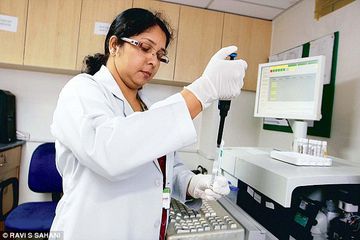Women in Sciences – Careers to explore
Availability of permanent, full-time academic research faculty positions are miniscule in number compared to the total PhDs and Post Doctoral researchers at any point of time. This compels many researchers to search jobs outside of academia. Many years of academic research may make us overqualified in certain areas, but not valuable enough to get a suitable job in the market.
Women in Science are strongly hit in this scenario owing to family responsibilities, and often opt for three-to-five years of contractual scientist positions (e.g., DST Women Scientist) after PhD, which leaves them with a broken career, almost in their middle age.
A PhD and further research years in any field of science provides a lot of expertise to an individual (see here), and can be utilised in parallel careers outside of academia. A lack of awareness about such fields often leads to opting out from career among many science-minded women. Here are a few paths in alternative science career possibilities in India not much written about till now:
Scientific Writing: Researchers earn the ability to write science articles by publishing journal articles of their work and writing a PhD thesis. They are proficient in using literature databases, and advanced writing software. Scientific writing in the field of healthcare is often categorized as medical communication or regulatory writing (more information here), and you would be designated as a medical writer. There are jobs available in these fields in KPOs, BPOs, or pharmaceutical companies.
Scientific Editing & reviewing: Scientific content editors and reviewers proficient both in scientific knowledge and the English language are sought after as a large part of the non-English-speaking countries look for publishing articles on their scientific progress in International Science journals. Freelancing is also possible in this field.
Research and analysis: Competitive intelligence, business intelligence and market research are upcoming fields in India, where the ability to do excellent information-gathering, strong scientific knowledge and concise report writing of an ex-scientist helps in gap analysis and understanding the activities of competitors in the market. Energy, healthcare, software, manufacturing and finance are thriving domains actively looking for candidates.
Technology transfer: This requires identification of research areas that are viable for commercialisation, or finding research experts to collaborate with some industrial research and development (R&D) requirement. Technology transfer requires good knowledge about multidisciplinary sciences, communication skills, and a sense of business. If you had collaboration with industry during your academic research, then that can be instrumental in getting a job in technology transfer. Some government research institutes in India have venture-centers. R&D departments of many companies look for such candidates.
Coaching and training: Indian government and many NGOs are involved in outreach to students at early stage, especially from under-privileged background to support them in understanding science (see here). Often, workshops on robotics and other scientific phenomena are arranged by many private players for high school and undergraduate students, and if you have the knack for demonstration and teaching, you can explore the upcoming field of science coaching in India (see here).
















